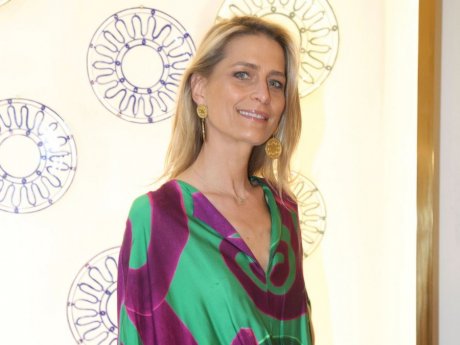India’s Exceptional Efforts in Fostering Gender Equality in the Global South
The country has consistently approached the highest score of one in these domains over recent years

Over the past few decades, India has been actively pursuing a comprehensive
approach to gender policy, emphasizing women-led development and gender
equality through multifaceted initiatives.
These efforts have focused on enhancing women's leadership, entrepreneurship, education, and skill development. Notably, according to the Global Gender Gap Report 2024, India has made significant strides in two critical areas: educational achievements and health and survival.
The country has consistently approached the highest score of one in these domains over recent years, exemplifying its progress in narrowing the gender gap. Despite recognizing the numerous challenges that remain, India's gender equality policies have evolved beyond domestic concerns, adopting a more international perspective by actively promoting gender-based equality on a broader scale.
There has been the emergence of positive gender trends in India, with the number
of women in salaried employment increasing, the share of women working in
agriculture decreasing, and the proportion of women entering the services sector
increasing.
Moreover, India is one of the few countries that has progressive laws for the third-
gender. There has been a wave of increasing acceptance and inclusion of the third
gender in India in legal provisions as well as in socio-economic spheres.
However, India’s affinity to celebration of all kinds of gender traces back to its
rich, diverse, and syncretic ancient and medieval heritage and histories. Over
centuries, the Indian subcontinent’s culture, art, literature, and public spaces
observed different forms of gender expressions as very much a part of quotidian
life and a well-accepted way of living. As per scholars, the ostracization of the third gender was the outcome of the Indian subcontinent’s tryst with colonial rule,
which considered any other gender expressions at odds (and hence undesirable)
vis-à-vis the strictly binary conception of gender and sexuality of the West.
Presently, the Indian Constitution readily provides individuals the right to self-
identify through Transgender Persons (Protection of Rights) Act in 2019, which
protects their rights and prohibits discrimination. It is also one of the very few
countries that allows individuals to identify as “third gender” in their passports.
At the global stage, India has adopted a style of gender diplomacy, which experts
refer to as the prototype of Feminist Foreign Policy, as enshrined in terms of
Indian External Affairs Minister, Dr S Jaishankar as “gender-balanced” foreign
policy.
The Feminist Foreign Policy (FFP) entails developing an ecosystem of
foreign policy institutions embodying policy innovation embodying feminist
values, goals, and concerns on gender diversity and inclusion. First, we note that
there is a growing deployment of Indian women peacekeepers in the UN
peacekeeping missions, which is a crucial part of India’s peacekeeping
endeavours, and signalling of India’s progressive values, and role of gender
equality in global security concerns.
In a recently held Conference on Women
Peacekeepers of the Global South, held in New Delhi in February 2025, where
women peacekeepers from 35 Troop Contributing Countries (TCCs), India
“reaffirmed its leadership in the promotion of gender inclusivity in peace
operations”. The conference also highlighted the strategies to be employed for
better utilization of women’s contributions to conflict zones through the use of
modern technology. This conference enshrines India’s consistent role in deploying women in UN peacekeeping as its soft power and as a crucial means
to pursue its diplomatic interests. Experience suggests that Indian Women
Peacekeepers have been effective in transforming conflict zones by providing
security, building trust, and serving as role models for local women and
children.
Second, at the global stage, India has always shown its staunch commitment to
gender equality by signing the Convention on Elimination of all Forms of
Discrimination against Women (CEDAW), Beijing Platform for Action, and the
Convention on Rights of the Child, and other gender-based UN conventions.
India was also included in the United Nations Commission on Status of Women
(CSW) as an elected member in September 2020, given New Delhi’s
commitments to international agreements towards gender equality; solidarity
and support provided by India, in terms of medicines and vaccines, to
industrialised as well as developing countries.
Third, India’s principle of “Vasudhaiva Kuthumbakam” is very much the
exercising of the FPP. India has been an altruistic, benevolent neighbour by being
a “first responder” in any matter related to South-South Cooperation. India’s role
in reaching out to neighbours in the situation of humanitarian aid and disaster
relief (HADR) or economic crisis (as recently exemplified with India’s aid to Sri
Lanka during its economic crisis) is exemplary.
India has maintained active engagement with the Global South in promoting women’s economic empowerment by supporting skill development training for women in the
neighbouring countries. It has also been involved in providing gender-specific
assistance to countries in South America, the Pacific, Middle East, South Asia, central America, and Africa, like Cambodia, Fiji, Lesotho, Myanmar, Palestine and Tajikistan, to name a few, to expedite its economic and development cooperation efforts.
Moreover, G20 Alliance for the Empowerment and Progression of Women’s Economic Representation (G20 EMPOWER), initiated by India in 2019, with representation from the Government and private sector, aims towards an action-driven alliance among businesses and governments for accelerating women’s leadership and empowerment across G20 countries.
However, there is a long way to go for the global community to achieve zero
discrimination based on gender, as one has to target not just macro-level policy
phenomena but also micro (or individual) level inconsistencies and barriers in
achieving the desired results. India is using both outward as well as inward-
looking policies in targeting gender equality in India and abroad.
Internally, through various national and regional programs like safety nets, indicators and community targeting, India is combatting gender-based discrimination and
ensuring the empowerment of women and other genders. Internationally, it has
shown unwavering commitment to ameliorate the economic and social conditions
of women through its gender-based (FPP-oriented) policies. Initiating a discourse
as well as action-led programmes for economic empowerment for the
marginalized gender on global platforms like the UN and G20 are important
achievements (yet more to come) in its path to gender equality.
Trending
.jpg?t=ih40vUYSuRMs7Bzv0Hyn8Q)




















Ο σχολιασμός είναι απενεργοποιημένος